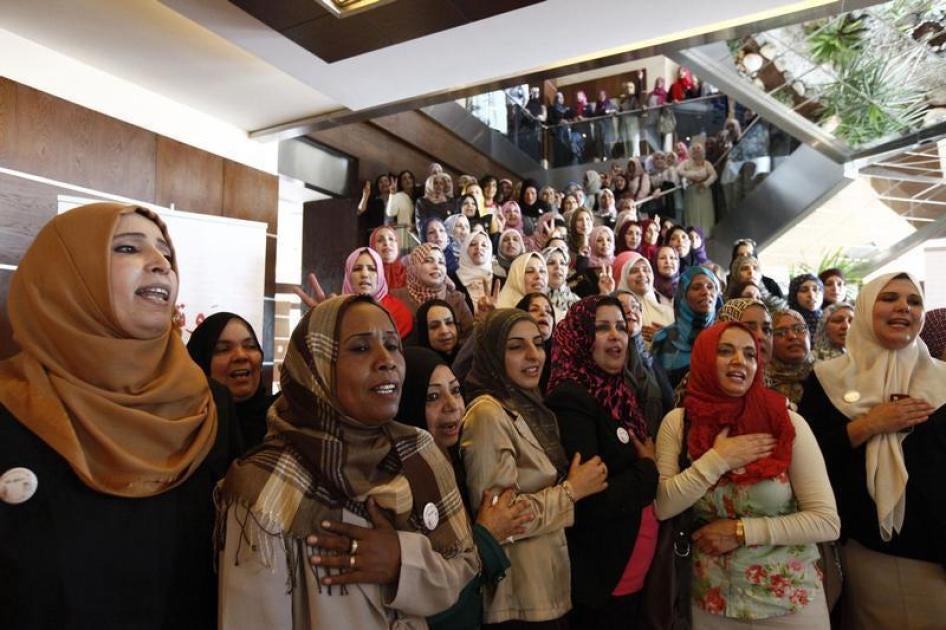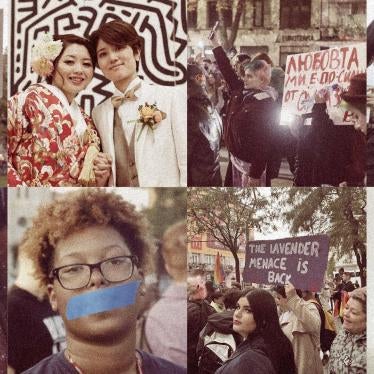January is shaping up to be a busy month for international peace efforts – talks to try to launch peace negotiations in Afghanistan were held earlier this month, a year-long effort has resulted in a sprawling proposed unity government in Libya, and there is cautious hope that Syrian negotiations will begin on the 25th.
But women are largely missing from these peace tables.
Last October, governments vied to see who could be most vocal on the importance of women’s participation in peace talks, as the United Nations Security Council marked the 15th anniversary of its landmark resolution on women in war. Numerous governments adopted laws to give teeth to those commitments.
Women activists achieved some success last year when the Afghan government adopted a national action plan on women, peace, and security. Since the end of the 2011 revolution, Libyan women have mobilized to participate in decisions about the future of their country, including on governance and political participation. Syrian women have struggled to join negotiating teams, to ensure consultations with women activists, and to include women’s rights in the core of any agreement.
Men do not have to convince governments or donors that they belong in peace talks, but women have to fight for their right to participate. Outrageously, their calls often go unheard.
In this month’s Afghanistan discussions, women were virtually absent, with two female assistants sitting behind the Afghanistan delegation taking notes, and one woman at the United States table.
In Libya, the recently proposed unity government, which is yet to be endorsed by the House of Representatives, has 32 members with only two women.
In Syria, the preliminary list of delegates for the Syrian opposition has three women in a list of 17.
Inclusive peace processes, and particularly those that include women, send an important message that women's rights matter. There is also evidence that when talks include women, they are more likely to result in a peace deal, the deal is more likely to be implemented, and the resolution is more likely to be sustainable. Governments, the UN, and mediators should live up to their promises and support women’s voices in these efforts to end conflict and promote human rights. Women are approximately 50% of the population. Why must we beg for a say in the future of our communities?









